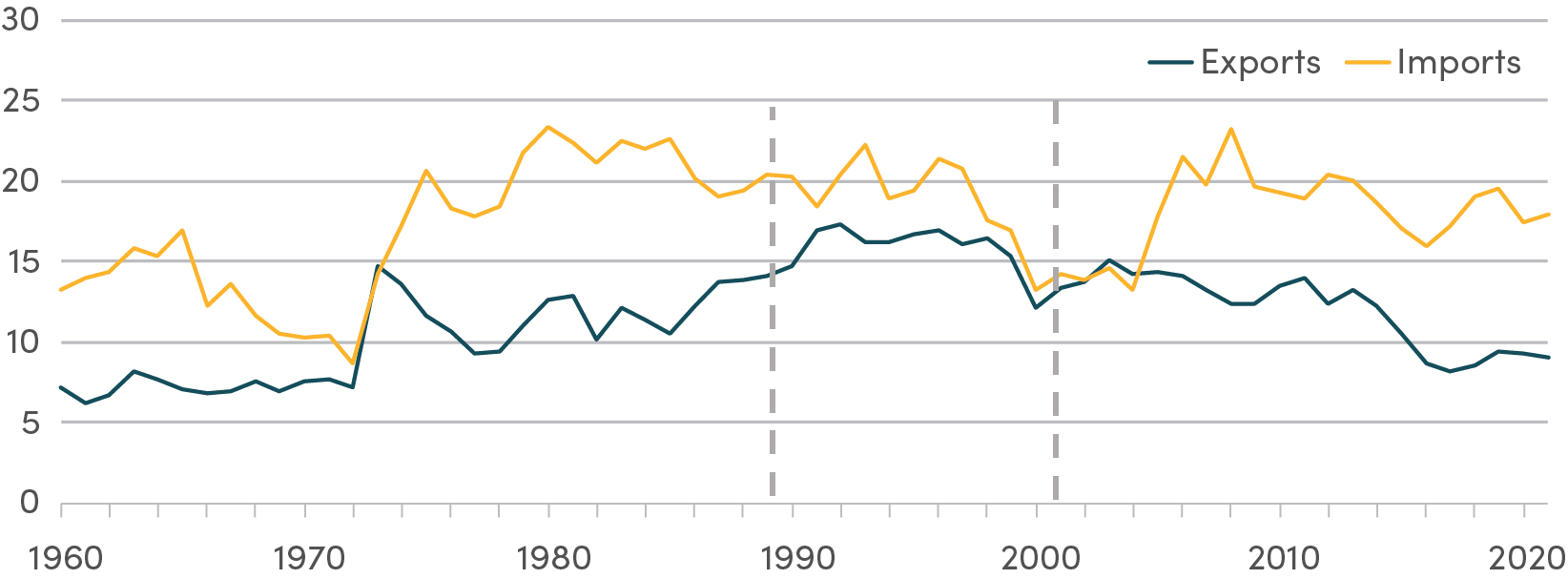There is an old French maxim that says, if you can't fire a worker, don't hire him. Asia seems to be learning French. The widespread "push-back" against earlier abuses of labor rights by non-democratic regimes is producing a host of well-intentioned labor market interventions throughout Asia that risk undermining the region’s greatest asset: it’s abundant and affordable labor. In Indonesia, for example, minimum wages have risen three-fold since 1998 and a number of local governments are actively competing to see who can have the highest minimum wage. Severance pay in Indonesia is now higher than in France--and, once hired it’s almost impossible to fire a worker.From 1994 to 2004, the unemployment rate increased 20 percent in South Asia, 44 percent in East Asia, and over 55 percent in Southeast Asia, even as the regional economies grew considerably, according to UNESCAP's 2006 survey. The number of unemployed people went from four to nine million in East Asia and from 5.5 to 14.6 million in Southeast Asia and Pacific states from 1992 to 2002.These are pretty discouraging numbers. At one level they suggest that Asia has become a remarkably unfriendly place to hire workers. There are likely to be a number of reasons, varying by country. Probably the biggest "overarching" factor must be the widespread availability of cheap global capital. Why deal with managing a labor force if machines are cheaper?But the relative decline in agriculture is clearly also coming into play. On average in Asia, it takes roughly three workers in agriculture to produce the same unit of GDP that a single urban worker can produce. The higher productivity of urban manufacturing and service workers is a good thing, of course, and raises their standard of living. But it also makes it harder to absorb new entrants to the labor force.Finally, As John Williamson has pointed out, part of the problem is statistical, as Asia’s economies rapidly become more formal, where unemployment can be recorded. Perhaps the good news is that these Asian economies are becoming rich enough that people can “afford” to be unemployed.These are the issues that six heads of state and the U.N. Economic and Social Commission for Asia and the Pacific gathered in Jakarta, Indonesia, to discuss in a three-day conference to enhance regional cooperation and tackle increasing unemployment. UNESCAP's 62nd Commission began on April 6. What can UNESCAP do about rising unemployment? The answer, I’m afraid, is “precious little.” Most of the actions will have to be at the country level, maybe even further down in this era of decentralization. It might help if UNESCAP actively called for more "employment-friendly" labor legislation, but this will probably prove to be politically impossible.
CGD blog posts reflect the views of the authors, drawing on prior research and experience in their areas of expertise.
CGD is a nonpartisan, independent organization and does not take institutional positions.




